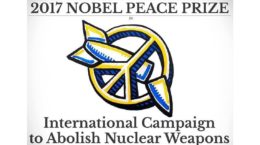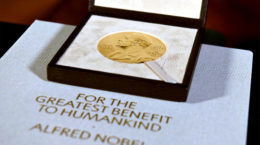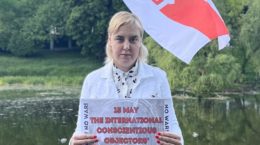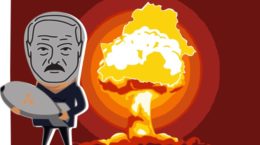On October 11, 2024, the Nobel Peace Prize was awarded to Nihon Hidankyo, a Japanese organization comprised of survivors from the atomic bombings of Hiroshima and Nagasaki during World War II. This prestigious recognition highlights their relentless commitment to advocating for a world free of nuclear weapons, serving as a poignant reminder of the catastrophic consequences of nuclear warfare.
The award comes on the heels of various joint initiatives aimed at raising awareness about the tragedies experienced by the survivors of these bombings. Throughout August, activists from around the globe participated in numerous events to commemorate the victims and advocate for nuclear disarmament. It is believed that the Nobel Committee took note of these significant efforts and the growing global peace movement advocating for the abolition of nuclear arms.
Nihon Hidankyo’s recognition is not merely an acknowledgment of their tireless work; it is also a tribute to all organizations dedicated to nuclear disarmament. The collaborative efforts of activists worldwide have brought critical attention to the pressing need for nuclear disarmament, especially in a time when nuclear armament is experiencing a troubling resurgence. The decision by the Nobel Committee to honor Nihon Hidankyo reflects the undeniable impact of these collective actions.
The stories of the survivors and their commitment to sharing their experiences serve as powerful reminders of the horrors of nuclear warfare. Their advocacy for a nuclear-free world has galvanized international opposition to these weapons. As we celebrate this achievement, it is crucial to amplify their voices and support their mission for disarmament.
The implications of this award extend beyond Japan. As highlighted by Toshiyuki Mimaki, co-chair of Nihon Hidankyo, the notion that nuclear weapons can guarantee peace is fundamentally flawed. This sentiment is particularly relevant today, as established nuclear powers modernize their arsenals and new nations pursue nuclear capabilities. The time has come for a unified global response against these threats and a renewed commitment to disarmament.
The recognition of Nihon Hidankyo serves as an urgent call to action, particularly in regions like Belarus, where the risks associated with nuclear weapons remain pressing. Advocating for nuclear disarmament is essential, and it is vital that we equip ourselves with the necessary tools and support to confront these ongoing challenges.
As we reflect on the significance of the Nobel Peace Prize awarded to Nihon Hidankyo, let us acknowledge the contributions of all individuals and organizations within the International Campaign to Abolish Nuclear Weapons (ICAN) movement and other anti-nuclear movements partners. Their dedication and relentless pursuit of peace have laid the groundwork for a safer, more just world. By leveraging this recognition, we can further our efforts to ensure that the voices of those affected by nuclear weapons are heard and that their stories inspire action.
In conclusion, the road to a world free of nuclear weapons is fraught with challenges, but together, we can strive for a future where such weapons are no longer a reality. The Nobel Peace Prize awarded to Nihon Hidankyo is a beacon of hope, illuminating the path toward a safer and more peaceful world for generations to come.
![]()











